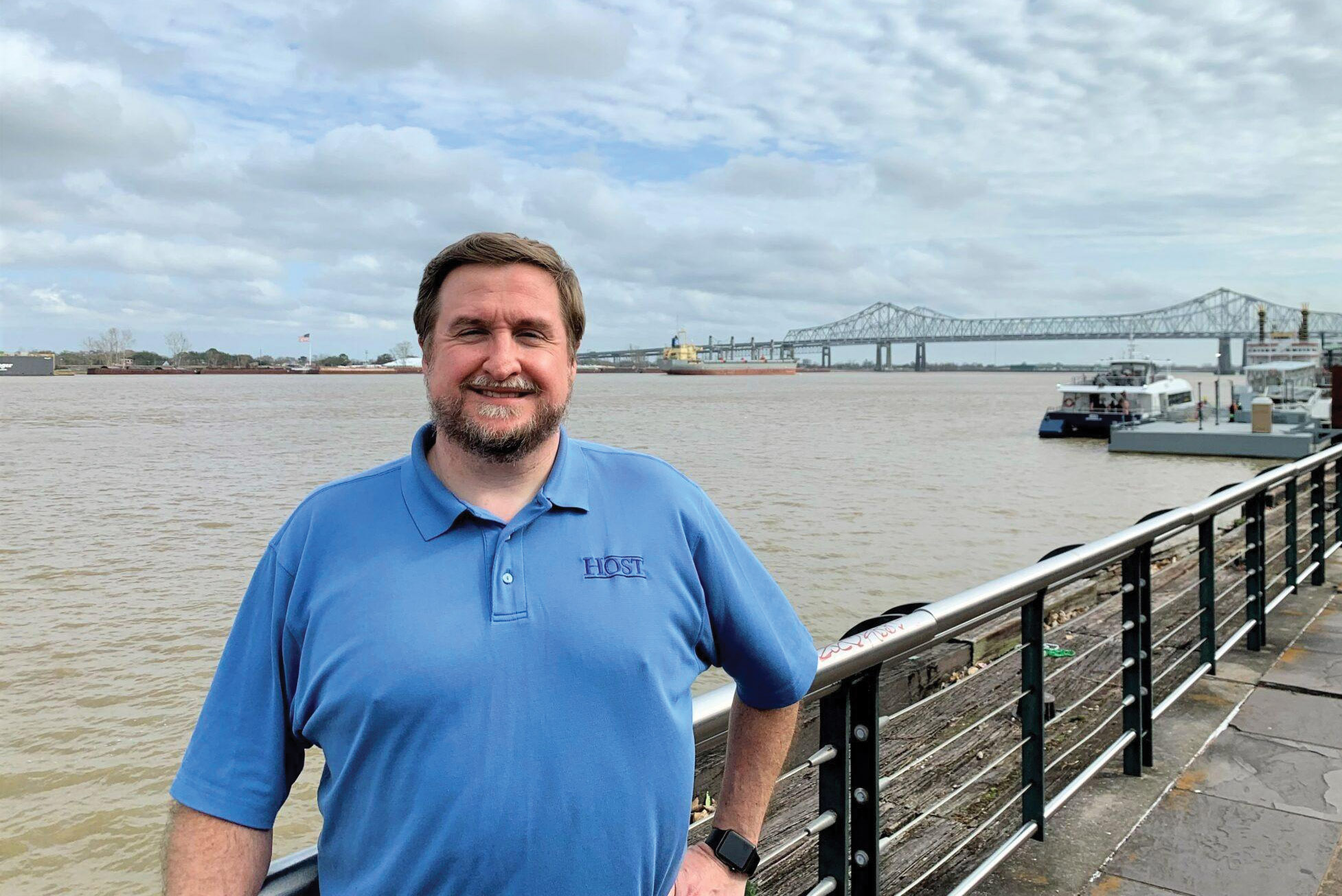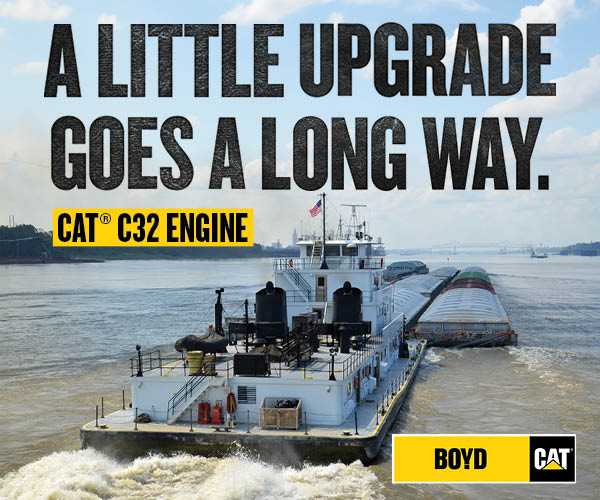Ken Kolb, PhD
Every day on the Lower Mississippi River, ships unload and load cargo, be it containerized, bulk or breakbulk. To keep things running smoothly, there is a shipping agent, like Bill McIntyre of T. Parker Host, monitoring the process from behind the scenes, making sure every form is completed, and every invoice is filed.
On the surface, the work of shipping agents seems straightforward. They are hired to represent the interests of those trying to get a ship or its goods (and sometimes both) from point A to point B. In practice, though, being an agent means controlling every aspect of a vessel entering and leaving the Mississippi River, from its cargo to its crews to its mechanical upkeep.
Once a ship is within days of entering the Mississippi River from the Gulf, McIntyre’s work begins by sending a “pre-arrival” form to the captain via email. This checklist lets McIntyre know if the ship is operating properly from bow to stern. The form asks questions about everything from functioning fire alarms to sealed hatch covers.
Next, he will get to the business of informing governmental agencies of the ship’s pending arrival. Foreign crew members will need to have their documents checked by immigration services, and the U.S. Coast Guard will want to know if the ship’s inspection records are up to date.
Pilots, Tugs And Lines
Upon entering the mouth of the Mississippi and until it eventually departs, every foreign-flagged cargo ship on the Mississippi River will require a river pilot on the bridge at all times. To make arrangements, McIntyre calls the dispatch officers at the Associated Branch Pilots, Crescent River Port Pilots and the New Orleans-Baton Rouge Steamship Association to ensure seamless pilot coverage throughout the journey.
To anchor or dock, ships will also need assistance from tugboat and mooring crews. McIntyre will contact those dispatch offices as well. The tugs will nudge and pull the ship into position, while the mooring crews will tie it off.
Respecting Nature
In cases of high water—any time when the river rises above 8 feet on the Carrolton Gauge in New Orleans—additional tug and line crews may be needed to hold a ship in place and provide another layer of safety. If the river gets too high or visibility gets too low, Vessel Traffic Service (VTS) may restrict the river to one way traffic at dangerous points.
Either way, every extra minute adds more services and costs more money.
McIntyre understands delays. He’s shepherded the passage of ships up and down the river for more than two decades. Some ship and cargo owners, though, are new to working on the Mississippi and less patient. McIntyre said he has to slowly and patiently walk them through all of the options until they understand that the river operates on its own schedule. There is no rushing nature.
Finding A Spot
When conditions permit, McIntyre will arrange dock space for each of his ships. Terminals are typically set up for one kind of cargo (i.e. container, bulk or breakbulk). If multiple vessels want to offload the same type of cargo at a given time, they typically have to wait their turn in line.
McIntyre enters a ship’s place in that order by submitting a “berthing application.” This form asks for basic information like the ship’s estimated arrival date and time, tonnage, length and draft. At the Port of New Orleans, for example, a berthing application must be submitted “no less than 48 hours prior to the date of discharge of inbound cargo or receipt of outbound cargo.”
Inputs And Outputs
Shipping agents, in essence, facilitate a ship’s metabolism. Besides cargo and crew, a ship will need to take on new supplies (food, parts and fuel) and offload waste, fumes, etc. This flow of inputs and outputs must be done with care. On the mechanical side, tending to a ship’s needs is referred to as “husbandry.” On the human side, meeting the physical needs of those on board is done through “chandlers.”
The shipping agent is the go-between for both of those operations. To save money, McIntyre tries to organize the comings and goings in as few deliveries as possible.
At some point in the process, he also likes to board the ship and ensure that the information on the forms is as accurate as possible. Although many agents in the business increasingly use electronic forms, McIntyre is still a believer that investing some time face-to-face in the short term can prevent a lot of headaches in the long term.
Once a ship is ready to leave port, McIntyre will repeat many of the same steps, this time in reverse. Once a ship reaches the sea buoy outside of Southwest Pass and drops off its last river pilot, he shifts focus to the next ship entering the river, and his work begins all over again.
Editor’s note: Ken Kolb, PhD, professor and chair of Furman University’s Department of Sociology, was born and raised in New Orleans. He is currently conducting research for his next book about shipping on the Mississippi River and the Port of New Orleans.
————
Featured photo caption: Bill McIntyre of T. Parker Host is one of the shipping agents who play an important role in keeping commerce moving smoothly when it arrives on the Lower Mississippi River after ocean travel. (Photo courtesy of the St. Louis Engineer District)



